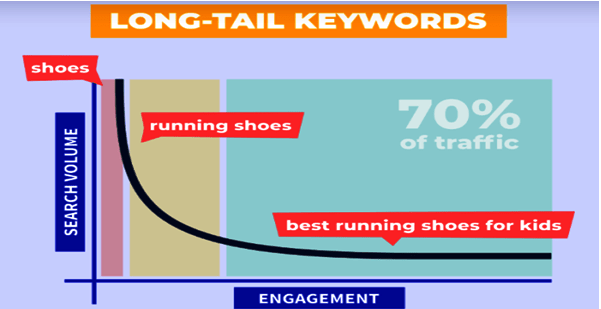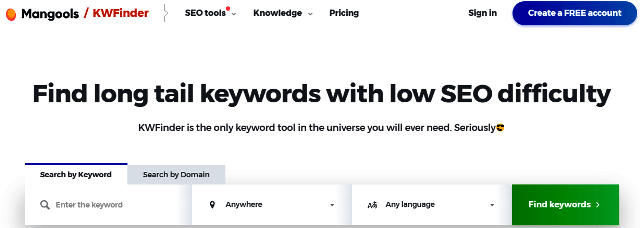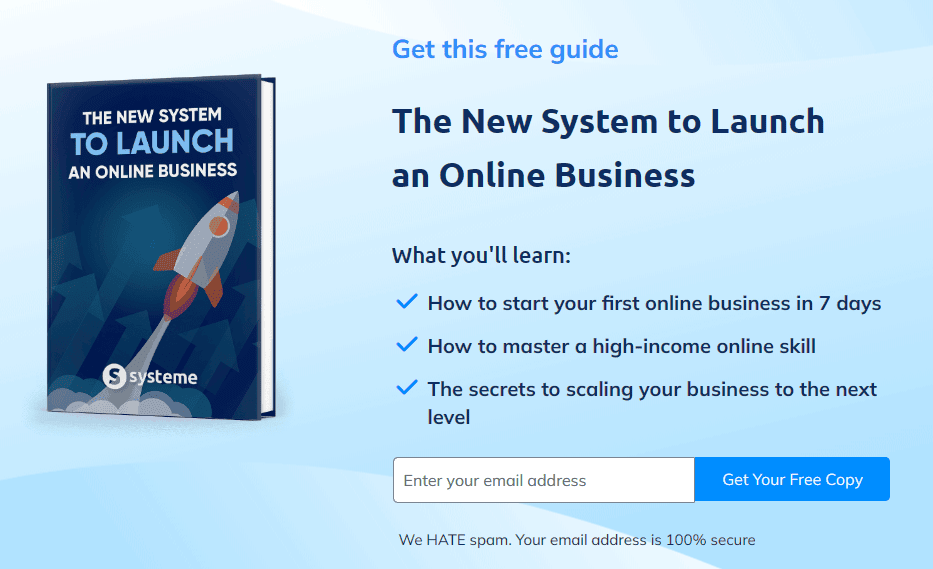Do you want to start a new business venture, or have an old one and want to publicize? Then you will need to craft strategies that will make you discoverable. Your best bet is to use words referred to as keywords. Keywords are the main phrases people use to search what they need. A good example is “ways to make money online”. That’s a keyword which will yield lots of “methods” for that particular phrase. This keyword research for beginners guide will reveal secrets to keyword research through essential tools. Keywords are golden- like the breadcrumbs that lead customers to your business.
You will need essential keyword research tools if want to improve your online presence. These tools will help you discover what your target audience is searching for. In this keyword research for beginner’s guide, we will show you how to effectively use keyword research tools to boost your content strategy.
By uncovering the secrets behind these tools, you will be able to elevate your SEO game and drive more traffic to your website or business. Get ready to unlock the potential of your content with the best keywords today.
What is Keyword Research?

Keyword research is the process you can use to identify specific words and phrases that people can use to search and find your business online. You’ll need to analyze metrics such as relevance to your business, search volumes, and competition. This will help to optimize your content for search engines.
For beginners, effective keyword research is important for improving your website’s visibility and driving real targeted traffic.
How to Do Keyword Research for Beginners
How do you conduct your keyword research? This is an essential component of any effective SEO strategy. Start with the basics of keyword research. Try to identify the specific words and phrases that your potential customers are using to search for products or services related to your business.
Evaluate long-tail keywords that are more specific and targeted towards your audience. Then brainstorm relevant terms and then utilize keyword research tools such as Google Keyword Planner, SEMrush, or Ahrefs to refine and expand your list.
Consider factors such as search volume, competition, and relevance to your business when selecting keywords. Additionally, analyze the keywords used by your competitors to gain insights into their strategies. This will assist in optimizing your website content and improve its visibility in search engine results pages (SERPs).
What Are Keyword Research Tools and Why Do You Need Them?
Keyword research tools are essential programs for digital marketing strategies. They are like treasure maps for content creators and marketers. These will help you discover what your audience is searching for, guiding you to choose the right words that can attract traffic to your site.
These tools analyze search data and show you how often specific keywords are being searched for. They also provide insights into related keywords, competition levels, and trends over time.
This information about keyword research for beginners is crucial to help you create content that resonates with your target audience.
With this in mind, you’ll definitely be able to stay ahead of the game, ensuring the success of your digital marketing efforts.
Types of Keyword Research Tools for Beginners
There are various tools a beginner can use for keyword research. Let’s explore some popular ones for this purpose:
1. Free Keyword Tools
If you’re just starting out, you might not want to spend a lot of money on tools. Thankfully, there are free options available. Mangools keyword finder is a perfect tool for that purpose.
Google’s Keyword Planner is another good choice but has since changed and gives filtered info. It provides insights directly from the search engine, offering a good foundation for your keyword research.
Another great option is Ubersuggest, which gives information on keyword volume and competition without a fee. There are also upcoming and very good tools you can use for free such as research tool by Ryan Robinson and free online tool or better still, H-supertools by Hassan Aboud. They are super good for business, try them out.
2. Paid Keyword Tools
Paid keyword tools have free options also. Consider investing in paid tools if you are serious about running a profitable business. These often come with advanced features that can save you time and provide deeper insights.
Tools like Mangools, Ahrefs and SEMrush are popular among professionals for their comprehensive keyword analysis and competitive research. Though most of these require a subscription, their capabilities can be worth the cost, especially as your needs expand.
3. Browser Extensions
Sometimes you can opt for simplicity. There are browser extensions like Keywords Everywhere that offer you an easy way to gather keyword data while you browse.
When you search for a term, this tool easily displays search volume, cost-per-click, and competition right alongside your search results. It’s a handy tool that integrates seamlessly into your daily online activity and can be an essential keyword research tool for beginners. Use them for your advantage.
How to Use Keyword Research Tools Effectively
Using keyword planner tools is everything about appreciating the data they present. Here’s how you can make the most of them:
Discovering Keyword Research Ideas for Beginners
Niche ideas are many. Start by devising a list of relevant topics to your niche or industry. Once you have a list, plug and run those into your keyword tool of choice.
You’ll be surprised at the additional ideas that appear. For instance, if you enter “digital marketing,” the tool might suggest awesome phrases like “digital marketing tips for beginners” or “how to start online marketing.”
Analyzing Search Volume
Keywords rank differently on certain parameters such as competition, volume and cost. Use a keyword planner to search for keywords with a moderate search volume.
This number indicates how often people are searching for that term. Aim for keywords that have decent search volume but not too much competition.
Keywords with search volume between 1,000 to 5,000 searches are ideal. If you get keywords with a competition of less than 30, those are the best to create content on and are easy to rank.
Evaluating Competition
When you see a keyword with high search volume, don’t jump on it immediately. Check the competition level. If there are too many established sites targeting that keyword, it may be tough to rank.
Look for opportunities where you can fit in and provide unique content that stands out- medium search volume, low competition!
Aiming for Long-Tail Keywords

Long-tail keywords are usually three or more words long. They may not have as high search volume, but they often connect better with users ready to make a decision. For example, instead of just “marketing tools,” consider “best digital marketing tools for beginners.” These keywords often lead to higher conversion rates because they target more specific queries.
Keeping Track of Your Researched Keywords
Once you’ve assembled your keywords, it is essential to track their performance. Use a simple spreadsheet to record your chosen keywords, their search volume, competition level, and the content you wrote using them. This way, you’ll discover what’s working and what isn’t. It’s like keeping a journal to track your personal growth!
Evolving with Trends
The digital landscape, just like users’ interest is an ever-changing field. Keyword research tools can help you keep your finger on the pulse. You should revisit your keyword strategies regularly and refresh your content with the latest trends. This will naturally keep your content relevant and also keep your audience engaged.
Tools to Help do Keyword Research for Free
You will definitely need tools to help you do proper research such as:
Google Keyword Planner: A Good Starter Kit
Google Keyword Planner is a powerful and easy to use tool which is perfect for beginners. You just input a website URL or a seed keyword, and it’ll generate a list of related keywords along with their average monthly searches, competition level, and more.
Mangools: The Keyword Master
Uncover the best long-tail keywords with low SEO difficulty with Mangools KWFinder tool and skyrocket your online presence. SEO is key for online visibility. It’ll show you what works for your competitors in real time.
Just enter their domain or URL and the keyword finder tool will show you the best keywords they rank for, easy-peasy!
SEMrush Free Trial: The Comprehensive Toolkit
SEMrush is primarily a paid tool but offers a free trial that’s worth checking out. With the trial, you’ll discover keywords, analyze your competition, and get insights into backlinks. It has the ability to show you the keywords that your competitors rank for and how they’re performing so that you may refine your strategy.
AnswerThePublic: The Questions That Matter
AnswerThePublic takes advantage of the natural curiosity. Enter a keyword, and it produces a visual map of questions, prepositions, and comparisons related to that keyword.
It has the ability to show you exactly what people are asking. Answer the questions and connect with your audience and it’s a great way to brainstorm blog topics or FAQs.
Ubersuggest: The Keyword Detective
Ubersuggest is another good one which will show you related terms and offer insights into their SEO potential. You’ll get search volume, paid difficulty, and SEO difficulty at the same time.
It has the ability to show the top-ranking pages for any keyword helping to spot trends and identify gaps in your content strategy. This will make it easier to create something fresh that grabs attention.
Keyword Surfer: The Chrome Extension Buddy
If you are a lover of browsing while doing research, Keyword Surfer is a fantastic Chrome extension to have. It’ll show you keyword data directly in Google search results, making it super easy to find related keywords without leaving that page.
As you surf the web, Keyword Surfer displays search volumes, CPC, and related keywords right beside your search results.
Soovle: The Diverse Keyword Generator
Soovle is a unique gem that pulls keyword suggestions from multiple search engines like Google, Bing, and YouTube. Soovle will help you uncover what people are searching across different media platforms. It offers insights from multiple sources so you can choose the best path for your content creation.
Whether you’re writing a blog, making a video, or crafting an ad, this tool will help diversify your keyword strategy.
Final Thoughts on Keyword Research for Beginners
Keyword research for beginners is supposed to be an easy task. Use the free tools to uncover the right keywords to skyrocket your online presence. These tools will serve as your compass as you navigate the seas of online content.
Start simple, explore different tools, and gradually immerse yourself in the data. The more you put into it, the more rewards you’ll reap in terms of traffic and engagement.
So, what are you waiting for? Dive into the world of keyword research tools, and let them guide you to your target audience. The treasure of success is just around the corner, so take the challenge head on!
Try Mangools super-effective tool for finding easy-to-rank keywords to boost your SEO score for instant visibility.












